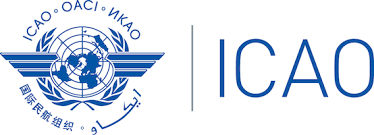International Civil Aviation Organization (ICAO): Ensuring Safe and Efficient Air Transport

In this blog post, we will explore the International Civil Aviation Organization (ICAO), its definition, establishment, location, significance, historical examples, and opportunities to join as staff or volunteer. The ICAO plays a critical role in developing global standards and regulations for civil aviation, ensuring the safety and efficiency of air transport across the globe.
The International Civil Aviation Organization (ICAO) is a specialized agency of the United Nations responsible for promoting the safe and orderly development of international civil aviation. Established on December 7, 1944, through the Chicago Convention, the ICAO sets standards and regulations for aviation safety, security, efficiency, environmental protection, and air navigation.

The ICAO has its headquarters in Montreal, Canada. The strategic location allows for close collaboration with member states, industry stakeholders, and other international organizations. The headquarters serve as the hub for ICAO's operations, which include conducting meetings, coordinating activities, and facilitating global cooperation in civil aviation.
Significance
Safety: One of the primary goals of the ICAO is to ensure the highest level of aviation safety. It develops and maintains global safety standards and practices, conducts safety audits, and assists member states in implementing effective safety management systems. By establishing uniform safety regulations, the ICAO contributes to reducing accidents and improving the overall safety record of civil aviation.

Efficiency: The ICAO works towards enhancing the efficiency of air transport by promoting harmonized air traffic management systems, air navigation procedures, and aviation infrastructure development. By optimizing flight routes, reducing congestion, and improving airspace management, the ICAO helps airlines operate more efficiently, leading to cost savings, reduced fuel consumption, and minimized environmental impact.
Environmental Protection: Recognizing the environmental impact of aviation, the ICAO actively addresses environmental challenges in the industry. It develops policies and measures to mitigate aircraft emissions, noise pollution, and other environmental impacts. Through initiatives like the Carbon Offsetting and Reduction Scheme for International Aviation (CORSIA), the ICAO aims to achieve carbon-neutral growth in the aviation sector.

Examples from History
Standardization of Aircraft Systems: The ICAO has played a significant role in standardizing aircraft systems and procedures. For example, the introduction of the global standard for the Ground Proximity Warning System (GPWS) has greatly improved aircraft safety by providing timely warnings to pilots about potential terrain-related hazards.
Response to Crises: The ICAO has demonstrated its ability to respond to aviation crises. For instance, after the terrorist attacks on September 11, 2001, the ICAO swiftly implemented new security measures and regulations to enhance aviation security worldwide, ensuring the safety of passengers and restoring confidence in air travel.

Opportunities to Join: If you are interested in working with the ICAO as staff or volunteer, consider the following options:
Employment: The ICAO offers employment opportunities in various areas, including aviation safety, air navigation, environmental protection, and legal affairs. Visit the ICAO's official website and explore the Employment section to find job vacancies and information on the application process.

Internship: The ICAO provides internship programs for individuals seeking practical experience in the field of civil aviation. Internship opportunities are available for students and recent graduates. Check the ICAO website for details on internship programs and application procedures.
The International Civil Aviation Organization (ICAO) plays a crucial role in ensuring the safety, efficiency, and sustainability of civil aviation worldwide. Through its global standards and regulations, the ICAO promotes the safe operation of aircraft, harmonizes air traffic management, and addresses environmental challenges. By joining the ICAO as staff or volunteers, individuals can contribute to the development and improvement of international civil aviation, making a positive impact on the safety and efficiency of air transport.

Sources:
- International Civil Aviation Organization (ICAO) - Official Website: https://www.icao.int/
- Convention on International Civil Aviation (Chicago Convention) - ICAO: https://www.icao.int/About-ICAO/History/Pages/Chicago-Convention.aspx
- ICAO Headquarters - ICAO: https://www.icao.int/about-icao/Pages/headquarters.aspx
- ICAO Safety - ICAO: https://www.icao.int/safety/Pages/Default.aspx
- ICAO Environmental Protection - ICAO: https://www.icao.int/environmental-protection/Pages/default.aspx
- CORSIA - ICAO: https://www.icao.int/environmental-protection/CORSIA/Pages/default.aspx
- ICAO Aviation Security - ICAO: https://www.icao.int/security/Pages/Default.aspx
- Ground Proximity Warning System (GPWS) - SKYbrary Aviation Safety: https://www.skybrary.aero/index.php/Ground_Proximity_Warning_System_(GPWS)
- ICAO Response to September 11, 2001 Attacks - ICAO: https://www.icao.int/Security/Avsec21/september11/Pages/default.aspx
- ICAO Careers - ICAO: https://www.icao.int/About-ICAO/Employment/Pages/default.aspx









